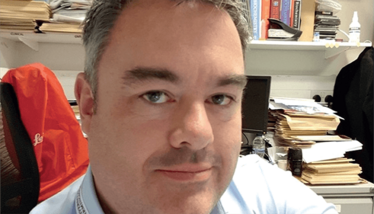Between Two Worlds: Doing Business as a Cell and Gene Academic
The pharmaceutical industry depends on academia, but that relationship – and its points of interchange – could be improved
Stuart Curbishley | | 6 min read | Practical

Medicine making for cell and gene therapy is a tripod; its three legs are academia, business, and the state. Pull out one leg and it falls. Without university laboratories, we would not have a single therapy for the market. And without state support through institutions such as the UK’S Cell and Gene Therapy Catapult, cell and gene companies would not perform at their best. For the foreseeable future, we can expect these things to remain true.
However, I do think that, if funding worked differently, the academic leg could stand on its own for longer. The problem is that academics simply cannot set out to raise, say, £150 million to fund the commercialization of a therapy. This is where the private sector steps in, turning the pure science of academia into viable IP.
Conversely, I seriously doubt that the private sector leg could ever stand entirely on its own. Although certain big pharma companies have set up cell therapy development teams, I expect that these companies are far more likely to release new iterations of existing products than truly novel therapeutics. This is where business needs academia.
I believe that we would be able to advance the field far more quickly if we could establish a way to distribute industry’s financial resources to academic programs earlier. If we could lead big pharma to fund the bakery, rather than buy the bread, we would shave years off the development process.
Though I would not claim to have all the answers to what is certainly a very difficult and inflexible problem, I would insist that new and better bridges be built between pharma and academia. You don’t need to take it on faith. I’m living proof.
This is my journey…
In 1999, I launched my academic career with a Master’s research degree at the University of Birmingham, UK. I stayed on to undertake a PhD on how chemokines drive inflammation and inflammatory liver disease. After completing that, I stayed on again, this time in a postdoctoral position researching monocyte myeloid cell biology with a view to developing dendritic cells as a primary liver cancer therapy. It was at this job that I first worked on a cell therapy program. It eventually led to my first involvement with a cell therapy trial, treating end-stage liver cancer with a dendritic cell vaccine. That trial reached its target and closed during the COVID-19 pandemic, ultimately yielding positive results.
Across the last half-decade, I have taken over running GMP activity for the University of Birmingham as a whole. We’ve grown from a small, self-enclosed facility to one with a variety of academic and commercial partners. Today, we manufacture a wide range of cell types and run a wide range of GMP services for the university.
Adding commercial viability to academic centers could transform the offer to early-stage startups. This is where academic CDMOs tend to falter; they are simply not designed with commercial questions such as speed and contracting in mind. Juxtaposition with appropriate commercial partners could smoothly speed the transition of academic programs to the world of privately financed cell therapy trials.
As a sector, academic CDMOs need to show a way out for people stuck in the rut of trying to build a therapy entirely on grant funding. After all, the moves that win you a grant are usually not the moves that will help you set up a robust, sustainable business. We need to spare these people from an imperative to regularly reinvent the wheel just to keep moving forward.
… and this is my bridge
In the case of my own company’s transition to the market, I don’t expect a massive change in our basic function – a CDMO with a strong focus on development. We will continue to work with commercial partners and focus on how they can complement our academic program. There are partial precedents for this here in the UK, where we have seen people take academic programs into our government-funded Cell and Gene Therapy Catapult and go on to raise impressive capital investments. However, in many instances, there is a lack of preparation and a lack of understanding of what is needed to commercialize. Often, the company’s processes require expensive development that comes far too late, after the company has already moved into rented manufacturing space.
Sensible commercial partnerships should help ease such transitions. We need to leverage the proximity of academic CDMOs to patient treatment centers and their populations of key opinion leaders at centers of clinical excellence. Our goal should be to work closely with early-stage therapy developers to get the product and the process right first time.
Skeptics may ask: doesn’t coupling with commercial partners introduce new problems, swapping the games of academia for the games of business? These are valid concerns, but all I can say in response is that, if we are careful in our establishment of key partnerships, we can still make a difference for patients. In business, of course, we have to deliver a return on investment – but the right market exists and is receptive, as we can see from the sector’s ongoing acceleration. In my university role, I am expected to make my current facility break even, but I am not being pushed to make returns to shareholders. Developing a commercial strategy would mark a change in my work, but I don’t see it as a major challenge.
Centers with no center
One of the factors we need to consider is scale. Academic CDMOs must take advantage of economies of scale to become profitable because there are huge costs involved in running a GMP facility. If we can create a network of academic centers with the right industry partnerships, the initial cost of setting up this cooperative enterprise will pay for itself down the line. For example, you can achieve a certain degree of leadership and quality oversight remotely – so these elements can be dispersed across your network, rather than replicated at every node. Therefore, the larger your network is, the more you can dilute these aspects of your running costs.
A dispersed network is also well suited to delivering autologous therapies to patients because it helps avoid the current situation. Right now, we ship materials thousands of miles to factories in the middle of nowhere only to then ship them back again. This is a bad economic practice, bad environmental practice, and adds an unnecessary high risk to your process.
To sum up…
Companies like mine must play a significant role in providing GMP manufacturing for cell and gene therapy clinical development post-grant-funding. We want to provide a bridge in manufacturing provision for smaller institutions who wish to develop cell and gene therapies, but do not have either the resources or the need to engage a large CDMO. This will enable more cell and gene therapies from a wider group of specialist organizations to progress to the clinic and potentially reach an even wider group of patients than may currently benefit from therapies in development.
Head of Business and Project Development – Advanced Therapies at the University of Birmingham, in the UK



















